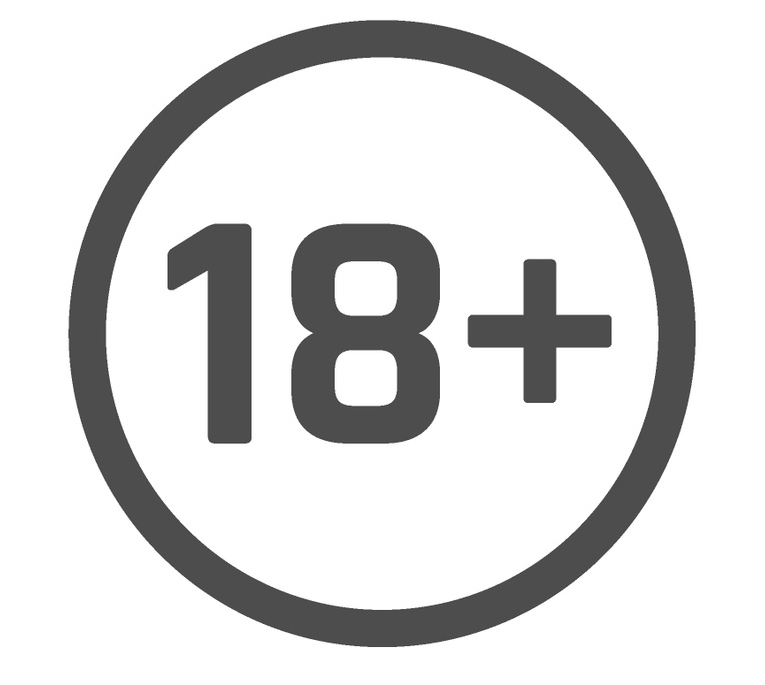Certificate Requirements
Students must complete a minimum of 12 hours (200 level and above) to earn the certificate.
-
Required Course: HRT 335 - Distillation, Wine, and Brewing Science (3 credit hours)
 Dr. Seth DeBolt, Dr. Jarrad Gollihue
Dr. Seth DeBolt, Dr. Jarrad Gollihue- Broad introduction into wine, brewing, and distillation science. Information includes viticulture (growing grapes for wine), wine making (production), wine flavor chemistry, commodities for fermentation, brewing science (beer making to distribution) and distilling. This class is not based on consumption, but rather the combination of science and management strategies needed to produce quality products. A structured vocabulary is associated with production, marketing and distribution of wine, brewing and distilled products. An overarching outcome of this course is that students can describe the chemistry, biology and technology involved in fermented beverages and apply these skills in a problem solving setting. The course will focus on introductory concepts, career paths available and problem solving skills required in each element of the production chain.
-
Required Course: A&S 306 - Spirit Chemistry (3 credit hours)

 Dr. Bert Lynn, Dr. Laura Walther
Dr. Bert Lynn, Dr. Laura Walther- In this course, students will explore the production of distilled spirits. The production of distilled spirits involves three basic steps: selection and processing of a carbohydrate (starch or sugar), fermentation of the carbohydrate to produce ethanol and distillation of the ethanol. In these processes, substances are produced and concentrated in the ethanol that create the unique flavors and fragrances associated with the individual spirit. Seven distilled spirits (moonshine, vodka, gin, rum, tequila, bourbon and scotch) will be discussed in detail.
- Prerequisites: Credit hours sufficient to be considered a junior or permission of the instructor.
-
Elective I (3 credit hours)
-
Elective II (3 credit hours)
Pick any two electives from the following course listings
DWBS Course Electives
AEN/TSM 341 - Brewing Science & Technology (3 credit hours)
 Dr. Czarena Crofcheck
Dr. Czarena Crofcheck
Introduction to the science and technology associated with the brewing of beer. Topics will include the history of beer, varieties of beer, and production of beer. Within the discussions about the production of beer, the effect of raw materials, processing, microbiology, and storage on the taste and appearance of the beer will be studied. The class will also cover beer appreciation and sensory perception, which will complement the discussions of science and technology in the production of beer.
HRT 336 - Introduction to Viticulture: Grape Production (3 credit hours)  Jeff Wheeler
Jeff Wheeler
This class is designed for students interested in pursuing a career in the commercial grape and wine industry. Topics to be discussed include: history of grape production, basic grapevine physiology and anatomy, vineyard design and establishment, important pathogens of grapevines, and economics of grape production. While primarily online, this course requires a practical examination at the University of Kentucky Horticulture Research Farm
HRT 337- Introduction to Enology: Wine Production (3 credit hours)  Jeff Wheeler
Jeff Wheeler
This course is designed to provide students with an understanding of procedures used to produce commercial wines in Kentucky. Topics to be discussed include: the impact of vineyard management practices on wine quality, chemical constituents of wine grapes, production procedures specific to various wine styles using both small and large scale equipment, and economics of wine production. Lecture, three hours per week.
PLS 389 - Wine Appreciation (3 credit hours)
 Dr. Michael Barrett
Dr. Michael Barrett
Wine has been produced and enjoyed for thousands of years. It can play an important role in culture, business and social events. While appreciation of wine can be as simple as whether you like a wine, knowledge of the history of wine, aspects of wine aromas and tastes, wine grapes, and winemaking processes opens up a world of deeper enjoyment for experiencing wine. This course will introduce students to these topics plus the major wine producing areas of the world and their wines. The overall goal of the course is to serve as a first step in a life-long journey of learning about and appreciating wines.
CME 480 - Bourbon Production Engineering (Chemical Engineers) (3 credit hours)  Dr. Sarah Wilson, Dr. Anastasia Hauser
Dr. Sarah Wilson, Dr. Anastasia Hauser
Bourbon is a key driver for Kentucky’s economy, where the industry contributes to over eight billion dollars and over 17,000 jobs in the state. This course challenges Chemical Engineering students to apply the fundamentals of their discipline to the science and engineering aspects that control the production of bourbon in a distillery setting.
In the first half of the course, students will receive an overview of the bourbon production process, with an emphasis on the connection between chemical engineering and the bourbon industry. Throughout this overview, there will be a focus on the economics of bourbon production, with students learning to estimate capital and operating costs associated with each stage of the production process.
The second half of the course will focus on a team-based design project, with preliminary research requiring students to visit several local distilleries. Students will then design a new bourbon production facility and estimate all processing parameters, including distillation column design, feedstock/product specifications, and product portfolio. These parameters will be used to estimate 5 and 10 year return on investment for a portfolio of bourbon products. Design updates will be presented to EGR 599 students and the final design will be summarized in a written report.
Prerequisites: CME 415 (Separation Processes)
EGR 380 - Bourbon Production Engineering (Non-Chemical Engineers) (3 credit hours)  Dr. Sarah Wilson, Dr. Anastasia Hauser
Dr. Sarah Wilson, Dr. Anastasia Hauser
Bourbon is a key driver for Kentucky’s economy, where the industry contributes to over eight billion dollars and over 17,000 jobs in the state. This course introduces students outside of chemical engineering to the science and engineering aspects that control the production of bourbon in a distillery setting.
In the first half of the course, students will receive an overview of the bourbon production process, with an emphasis on the connection between chemical engineering and the bourbon industry. Throughout this overview, there will be a focus on the economics of bourbon production, with students learning to estimate capital and operating costs associated with each stage of the production process. Additionally, student will learn about key design decisions that must be made and common problems that arise in the bourbon production process.
Over the second half of the course, students will learn basic chemical engineering concepts (material and energy balances) and how they apply to bourbon production. By the end of the course, students will understand the key decisions driving design of both continuous and batch distillation processes. They will have the skills to evaluate these methods using understanding of equilibrium processes.
Prerequisites: CHE 105 and MA 110 (or approval by instructor).
FSC 430 - Sensory Evaluation of Foods (3 credit hours) Dr. Srendranath Suman
This course deals with the sensory evaluation methods used for food products based on flavor, odor, color, and texture. This includes techniques for measuring sensory attributes, instrumental analysis of foods, statistical analyses of data, and how sensory evaluation programs are utilized in the food industry.
Prerequisite: STA 296 and FSC 306, or FSC 304 (prerequisite or concurrent enrollment).
FSC 538 - Food Fermentation (4 credit hours) Dr. Rachel Schendel
The use of microorganisms in the preservation of raw foods and the manufacture of new foods. Manipulation and improvement of cultures to ensure production of desirable end products. Lecture, three hours; laboratory, two hours.
Prerequisite: BIO 208 and BIO 209 or equivalent, or consent of instructor.
HMT 420 - Beer, Wine, and Spirits Tourism Principles and Practice (3 credit hours)
 Dr. Jason Swanson
Dr. Jason Swanson
This course introduces students to the intersection of tourism and the production of beer, wine, and spirits. The course focuses on the history, culture, and economic value from tourism on communities in which beverages are produced. The course has a global focus and also pays special attention to bourbon-related tourism in Kentucky. The course requires students to visit to two distilleries, two wineries, and two breweries. Travel time and entry fees are the responsibility of the student.
PLS 395 - Special Problems in Plant & Soil Science (3 credit hours)
May be repeated for a maximum of nine credits.
Prerequisite: Consent of appropriate instructor before registration.
PLS 399 - Experiential Learning in Plant & Soil Science (3 credit hours)
A field-based learning experience in plant and soil science under the supervision of a faculty member. May be repeated for a maximum of six credits. Pass/fail only.
Prerequisite: Complete learning contract before registration.
WRD 225 - Craft Writing (3 credit hours)  Dr. Janice W. Fernheimer
Dr. Janice W. Fernheimer
This course introduces students to Kentucky's iconic Bourbon history and heritage and the many diverse individuals--Jewish, African American, Japanese, Irish, female and others who contributed to its development (ex. Uncle Nearest was the enslaved African American man who taught Jack Daniel how to distill!) . Students will gain familiarity and practice in the genres of Bourbon writing, building a portfolio that will help them enter industry writing if they choose. Additionally, students will be introduced to primary sources including the Kentucky Bourbon Tales, the Women in Bourbon, Black Women in Bourbon oral history collections as well as the Schenley Distillers Corporation materials in UK's Special Collections and Resources.
Prerequisite: Completion of Composition and Communication requirement or consent of instructor.
WRD 569 - Composing Oral History: Bourbon Oral History (3 credit hours)  Dr. Janice W. Fernheimer
Dr. Janice W. Fernheimer
In this course, students will build the historical bourbon record by interviewing women bourbon industry experts, leaders, insiders. Students will learn about oral history as a method, bourbon as an industry, and the art of interviewing itself. By semester’s end students will know how to craft a strong set of questions, conduct an original oral history interview, reflect on their process, and create persuasive materials aimed at public audiences. Interviews will be archived in the Louie B. Nunn Center for Oral History as part of the Women in Bourbon Oral History Project. Note: Students who have enrolled in the past have gone on to launch their own bourbon brands; become distillers at Willet, Bulleit and other distilleries; become Bourbon educators, or work at Heaven Hill learning about bourbon law as paid interns.
AFE 396 - From Rome to Florence Exploring Italian History, Culture, Food, & Wine (3 credit hours)  Dr. Michael Barrett
Dr. Michael Barrett
Italy holds a special place in Western history and development of Western culture. In addition, Americans love Italian foods and wines (we import more wine from Italy than any other country). While this course has a focus on Italian wine, especially the wines of Tuscany, to fully appreciate the wines of a place you need to understand the context of the place. This includes the history, culture and the food. We will use our time in Rome to explore some Roman history and culture, time in Florence to learn about the importance of the Italian city-state and the fabulous contributions to art that it spawned, and we will visit Siena to learn about a city impacted by previous pandemic, the Black Plague. In addition, we will use our time in the Tuscan countryside to learn about Italian food production and cooking as well as the major wine areas and types of Tuscan wines. Sampling of the food and wine will be, of course, part of this too! Course activities will also give students insight into modern Italian life and culture to compare to those in the United States. Rudimentary Italian language lessons will help students be comfortable interacting with Italians in shops, restaurants and wineries.
AFE 396 - Rum Distillation, Wine & Brewing Science in St. Croix (3 credit hours)  Dr. Seth DeBolt
Dr. Seth DeBolt
Application accepted until April 2nd. Rum plays an important economic and cultural role in the Caribbean. The 10 day study abroad program in St. Croix will teach a foundational course for the Distillation Wine and Brewing Studies Certificate, HRT 335, but with an emphasis on Rum production and history of the spirit. The program seeks to provide students with an understanding of the rum production process, blending, flavoring and marketing. We will take field trips to local rum producers, such as Cruzan and Cpt. Morgan, as well as local breweries. The course will also feature guest lectures from local academics and industry professionals. You will form industry contacts and gain exposure to local culture through lectures, meals and cultural visits. Economic, environmental and social responsibility topics will be covered and addressed during the course as well.
![]() designates a minimum age of 21
designates a minimum age of 21
![]() designates online sections available
designates online sections available
![]() designates a minimum age of 18
designates a minimum age of 18
Related Coursework
The coursework below relate to the DBW industry, but they are below the 200 level and do not count towards the credits for the certificate.
HIS 130 - Alcohol and Drugs in Western Civilization (3 credit hours) Dr. Scott K. Taylor
This course is an overview of the history of drugs and alcohol, and the individual and social problems that surround their use. The course begins when new or newly wide-spread stimulants like coffee, tea, tobacco, chocolate, sugar, and distilled spirits joined beer and wine as European consumer goods. The course then goes on to the more modern problems of increasingly potent drugs like heroin, cocaine, and cigarettes, and responses to them such as regulation, taxation, Prohibition, Alcoholics Anonymous, and the "War on Drugs."
A&S 100, Sec 201- On the Rocks - The Geology of Beer, Wine and Spirit Alcohol (3 credit hours) [1/2 semester course]  Dr. Michael McGlue
Dr. Michael McGlue
An introductory earth systems science course that provides a high-level overview of the environmental and geological factors that influence the production of beer, wine, and spirit alcohol. No prerequisites apart from an interest in the natural world and a passion for more knowledge on the science of alcoholic beverages is required. The course is broken into five sections: (1) science basics, including the details of the atmosphere, hydrosphere, cryosphere, biosphere, and geosphere (2) geology of beer, (3) geology of wine, (4) geology of distilled spirits, (5) environmental history, and (6) bourbon in the Bluegrass. The focus of sections 2, 3 and 4 are a series of lectures that follows a case study approach. “Famous” bottles of beer, wine, and spirits will be used to contextualize the critical zone of regions across the globe that have become renowned for the production of alcoholic beverages. In section 5, we will explore how critical events in environmental history (climate change, wildfires, earthquakes) have influenced these areas. In module 6, the course will emphasize the unique convergence of environmental and geological conditions in central Kentucky that has allowed the bourbon tradition to flourish.
